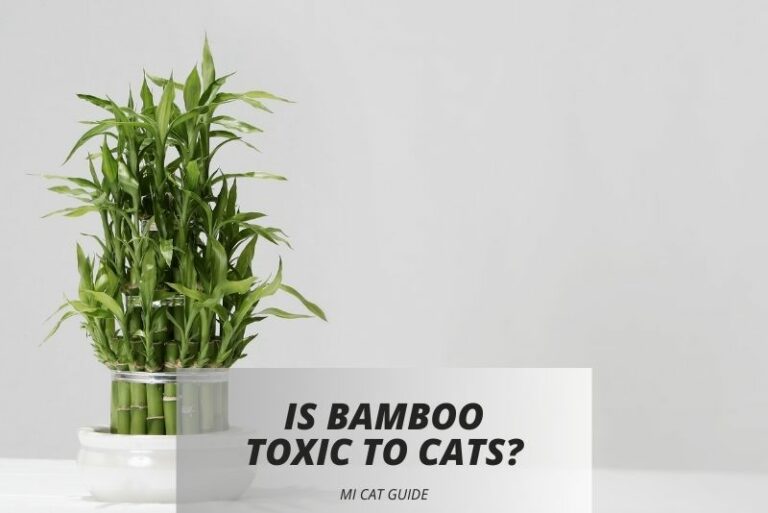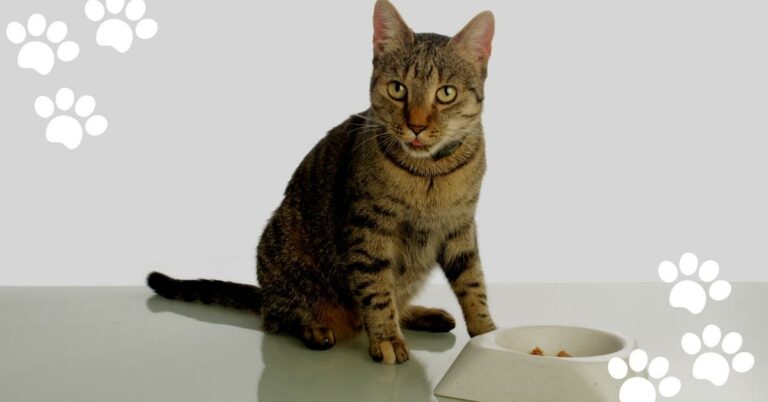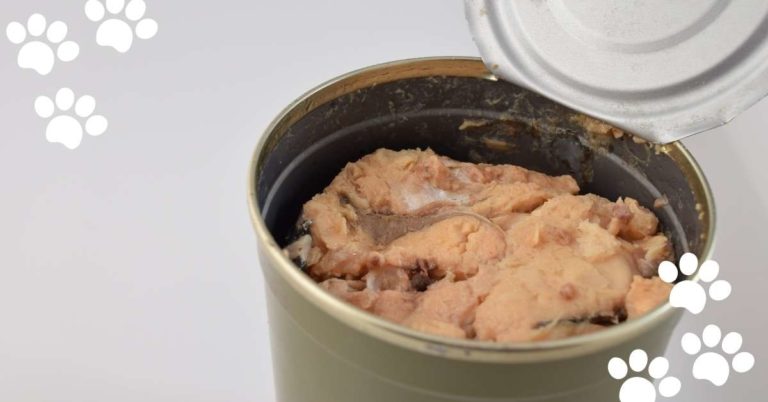Why Does My Cat’s Poop Smell So Bad? (13 Possible Reasons)
Cat’s health can be determined by the smell, texture, and color of their poop. If your cat’s poop smells bad, it could be a sign of an underlying health issue. There are many potential causes of foul-smelling stool in cats, including dietary indiscretion, intestinal parasites, bacterial infections, and liver disease.
A change in diet is the most common cause of bad smelling stool in cats. If your cat has recently started eating a new food or treats, it may take their digestive system a while to adjust.
Eating too much fatty food can also cause loose, smelly stools. Cats who gorge themselves on grass can also have smelly stool due to the high cellulose content.
Keep read on to know more about possible reasons for your cat’s bad-smelling stool and what you can do about it.
Why Does My Cat’s Poop Smell So Bad? 13 Possible Reasons
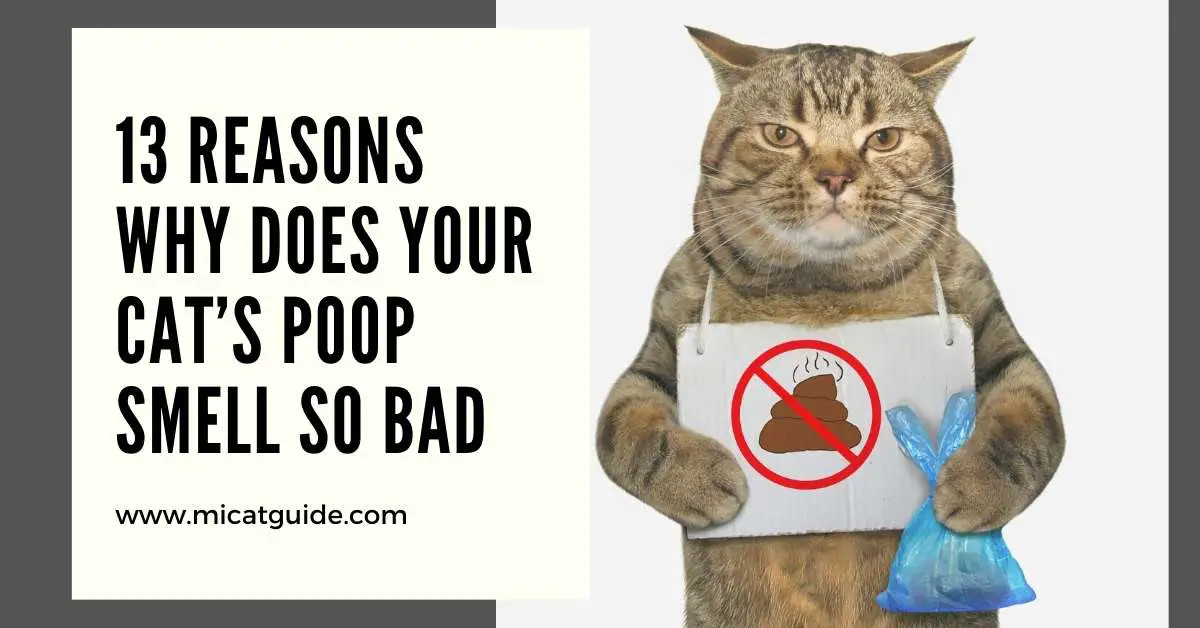
If you’ve ever been to a friend’s house and been greeted by a stinky cat, you may have wondered why some cats’ poop smells so bad. The answer lies in the composition of cat food and the fact that cats have a very short digestive tract.
Cats are obligate carnivores, which means that they require animal-based protein to survive. This diet is very different from what omnivores (like us) or even other carnivores eat.
Because their intestines are shorter, cats can’t digest plant-based material as well as we can. This means that when they eat things like grains or vegetables, those ingredients tend to come out in their stool largely undigested.
Here I’ll talk about 13 common causes of foul-smelling stool in cats and what you can do about it.
1. Dietary Indiscretion
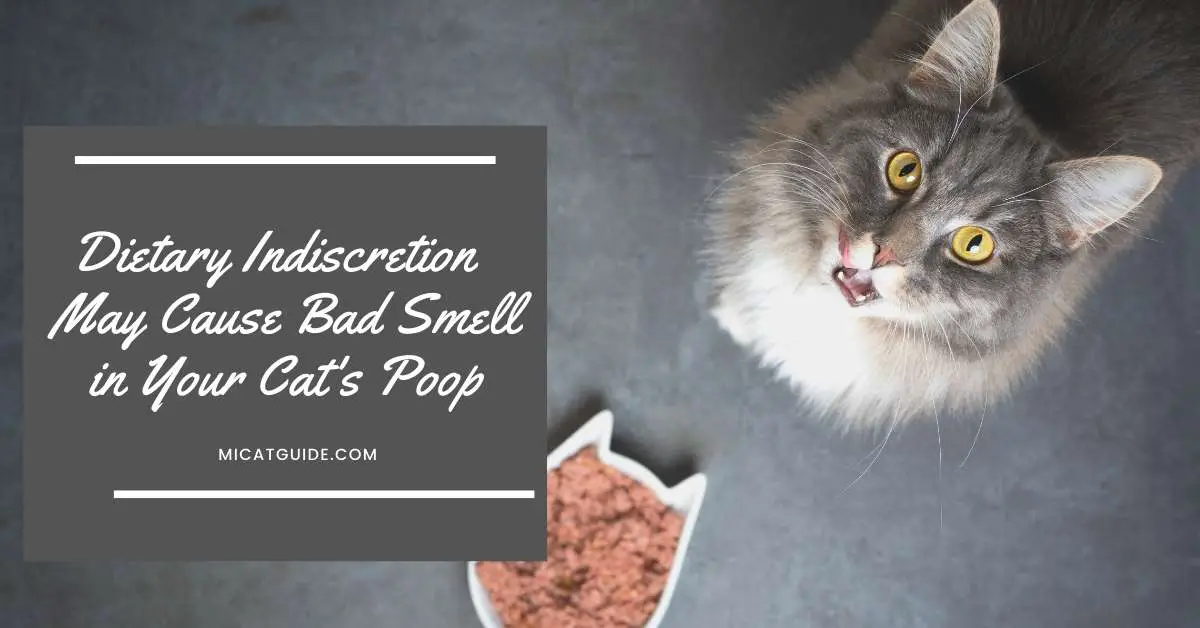
The most common cause of foul-smelling stool in cats is dietary indiscretion, which simply means that your cat has eaten something that doesn’t agree with them.
This could be anything from spoiled food to garbage, and it doesn’t take much to upset a cat’s stomach.
If your cat has gotten into something they shouldn’t have, the first thing you should do is call your veterinarian. They can help you determine if your cat needs to be seen urgently or if they can wait for a regular appointment.
2. Intestinal Parasites
Intestinal parasites are another common cause of bad smelling stool in cats. These are tiny creatures that live in your cat’s intestines and feed off of their food.
The most common type of intestinal parasite in cats is the roundworm, which can grow up to four inches long! Other common parasites include tapeworms, hookworms, and coccidia.
Intestinal parasites are usually transmitted through contaminated food or water, or by contact with an infected animal. Kittens are especially susceptible because their immune systems are not yet fully developed.
If you think your cat may have intestinal parasites, the best thing to do is take them to your veterinarian for a stool sample. They will be able to test for the presence of parasites and prescribe the appropriate treatment.
3. Bacterial Infections
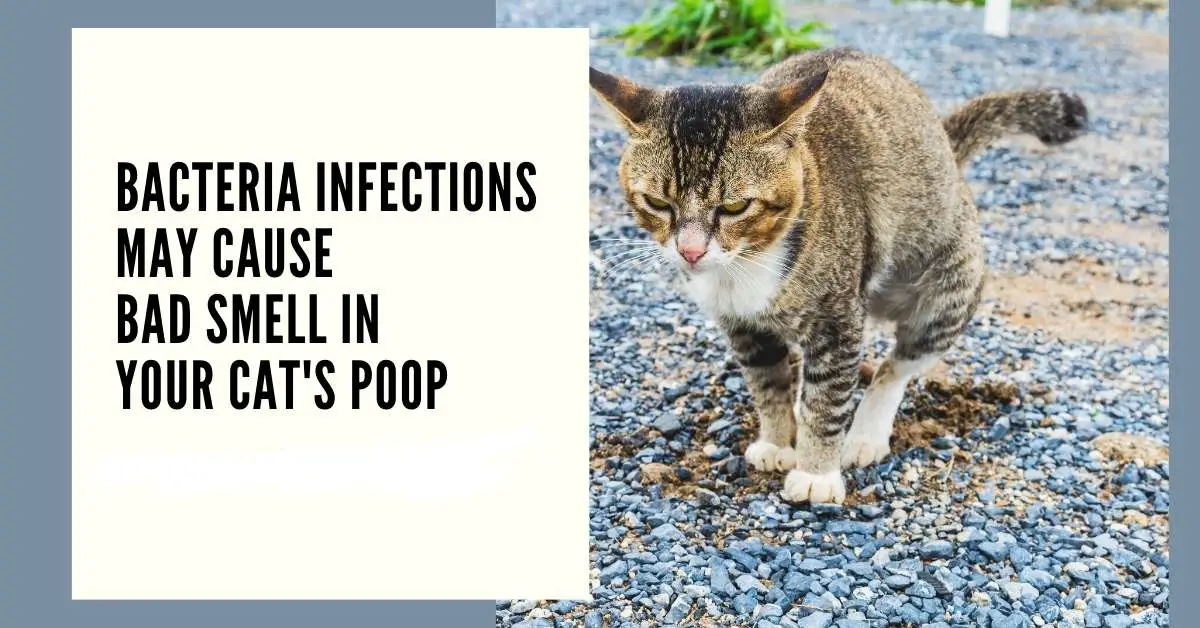
Bacterial infections are another possible cause of bad smelling stool in cats. These occur when bacteria from contaminated food or water enter your cat’s digestive system and start to multiply.
The most common type of bacterial infection in cats is called salmonella. Symptoms of a bacterial infection include vomiting, diarrhea, lethargy, and fever.
If you think your cat may have a bacterial infection, it’s important to take them to your veterinarian right away. They will be able to prescribe the appropriate antibiotics to treat the infection.
4. Liver Disease
Liver disease is a serious condition that can cause a wide variety of symptoms in cats, including foul-smelling stool. The liver is responsible for filtering toxins out of the blood, so when it is not functioning properly, those toxins can build up and make your cat sick.
Other symptoms of liver disease include appetite loss, weight loss, vomiting, and yellowing of the skin or eyes (jaundice). If you think your cat may have liver disease, it’s important to take them to your veterinarian right away. They will be able to run tests to confirm the diagnosis and start your cat on the appropriate treatment.
5. Pancreatitis
Pancreatitis is another condition that can cause bad smelling stool in cats. The pancreas is an organ that produces enzymes that help digest food.
When the pancreas becomes inflamed, those enzymes are activated prematurely and begin to digest the pancreas itself. This can cause severe abdominal pain, vomiting, and diarrhea.
If you think your cat may have pancreatitis, it’s important to take them to your veterinarian right away. They will be able to run tests to confirm the diagnosis and start your cat on the appropriate treatment.
6. Supplements Or Medications
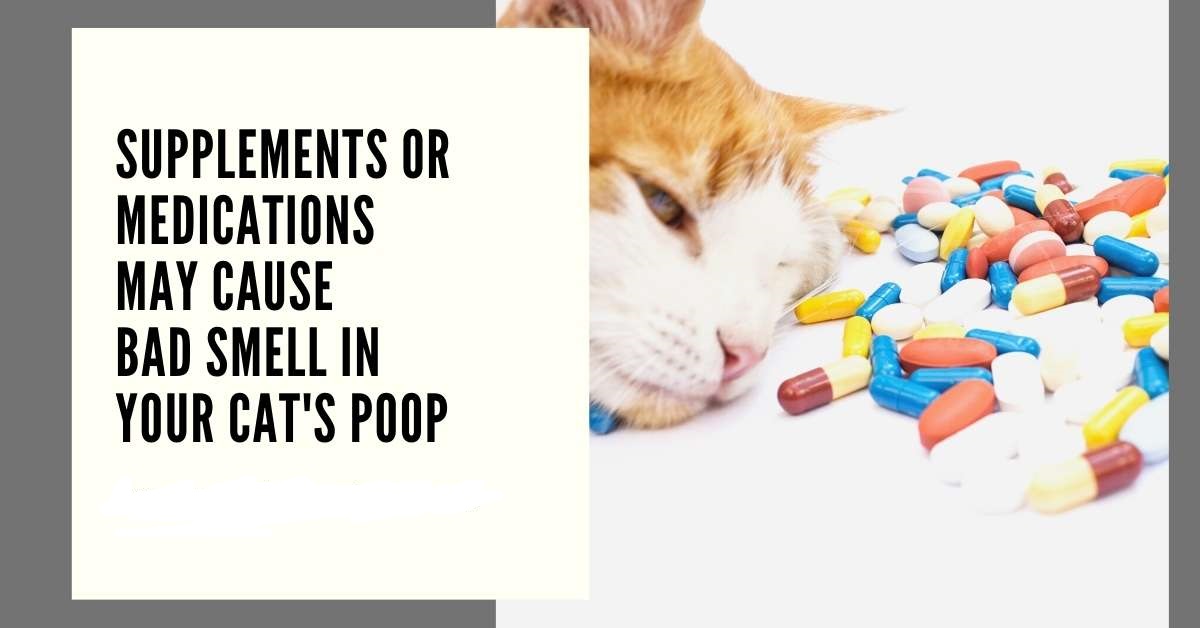
Certain supplements and medications can also cause bad smelling stool in cats. For example, some vitamins and minerals can cause GI upset when they are not absorbed properly.
Certain antibiotics can also cause diarrhea as a side effect. If you think your cat’s medication may be causing foul-smelling stool, it’s important to talk to your veterinarian. They may be able to prescribe a different medication that is less likely to cause this side effect.
7. Cancer
Cancer is a rare but possible cause of bad smelling stool in cats. There are several types of cancer that can affect the digestive system, including intestinal lymphoma and adenocarcinoma.
Symptoms of cancer in cats include weight loss, appetite loss, vomiting, and diarrhea. If you think your cat may have cancer, it’s important to take them to your veterinarian right away.
They will be able to run tests to confirm the diagnosis and start your cat on the appropriate treatment.
8. Digestive Disorders
There are several disorders that can affect the digestive system and cause bad smelling stool in cats. These include inflammatory bowel disease (IBD), exocrine pancreatic insufficiency (EPI), and food allergies.
Symptoms of digestive disorders include vomiting, diarrhea, appetite loss, and weight loss. If you think your cat may have a digestive disorder, it’s important to take them to your veterinarian. They will be able to run tests to confirm the diagnosis and start your cat on the appropriate treatment.
9. Stress
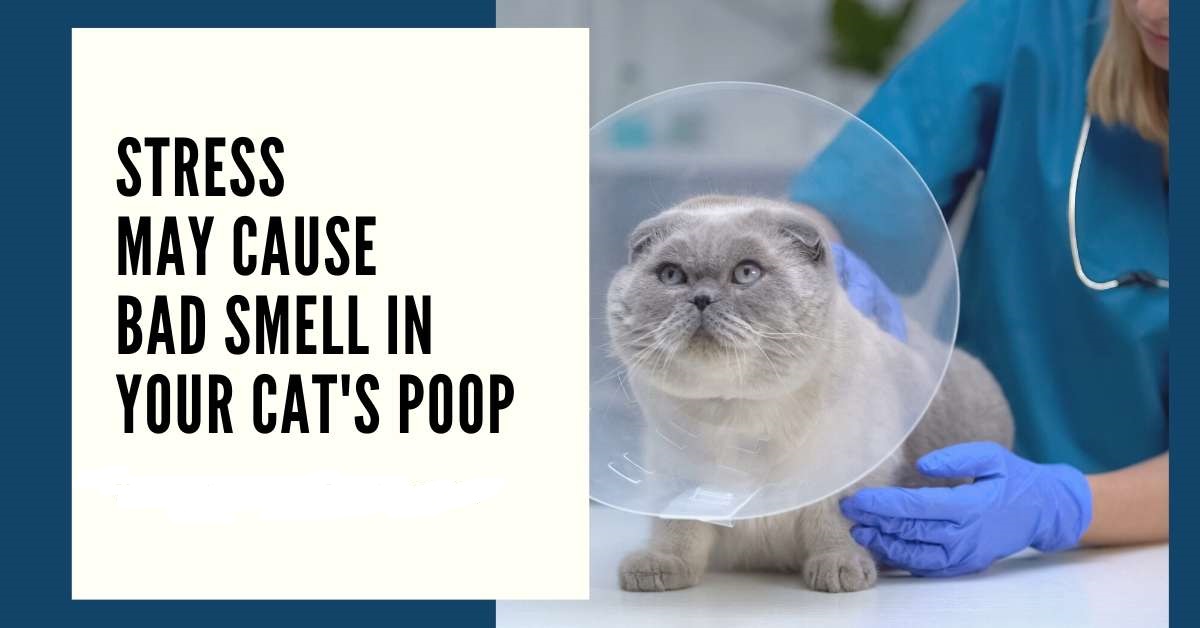
Stress is a common trigger for many health problems in cats, including gastrointestinal issues like foul-smelling stool. Cats can experience stress from a variety of sources, including changes in their environment, changes in their routine, and even other cats in the house.
If you think your cat’s stool smells bad because of stress, it’s important to try to reduce their stress as much as possible.
This may involve providing them with a safe space to retreat to, increasing the amount of playtime they have, or giving them pheromone diffusers or collars.
10. Anal Gland Issues
The anal glands are two small glands located near the anus. These glands produce a bad smelling liquid that is released when your cat defecates.
If the anal glands become full or infected, they can cause your cat’s stool to smell bad. Your veterinarian can express the anal glands to relieve the pressure and help clear the infection.
11. Diet
The food your cat eats can also cause their stool to smell bad. If your cat is eating a diet that is high in fat, it can lead to gastrointestinal issues like diarrhea and bad smelling stool.
It’s important to talk to your veterinarian about the best diet for your cat. They can recommend a food that is balanced and nutritious, and that will help keep your cat’s digestive system healthy.
12. Maybe It’s The Litter Box?
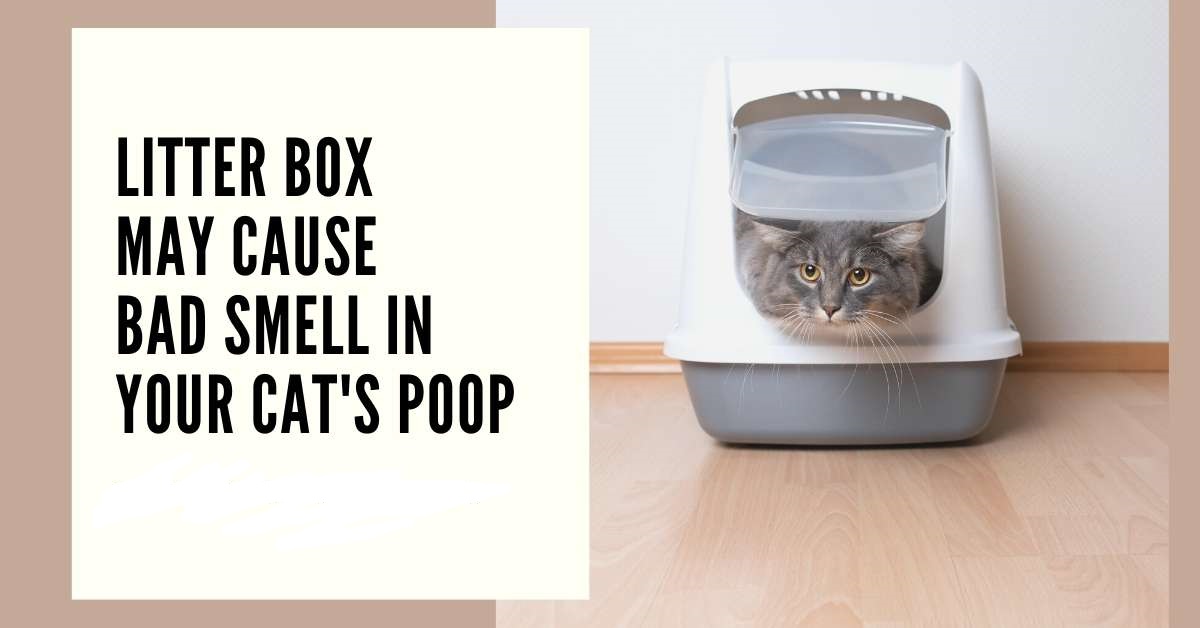
Sometimes, the cause of foul-smelling stool is not what your cat is eating, but what they are using to elimination. If the litter box is not cleaned regularly, it can start to smell bad. This can make your cat’s stool smell bad as well.
13. Cat Caught Something?
Now that most interesting part, sometimes cats can bring in things from outside that cause their stool to stink. It’s not uncommon for cats to catch and eat rodents or birds. If your cat has caught something, it’s possible that the animal is causing the bad smell.
If you think your cat has caught something, it’s important to take them to the veterinarian right away. They will be able to determine if the animal is causing the problem and start your cat on the appropriate treatment.
How To Prevent Bad Smelling Stool in Cats?
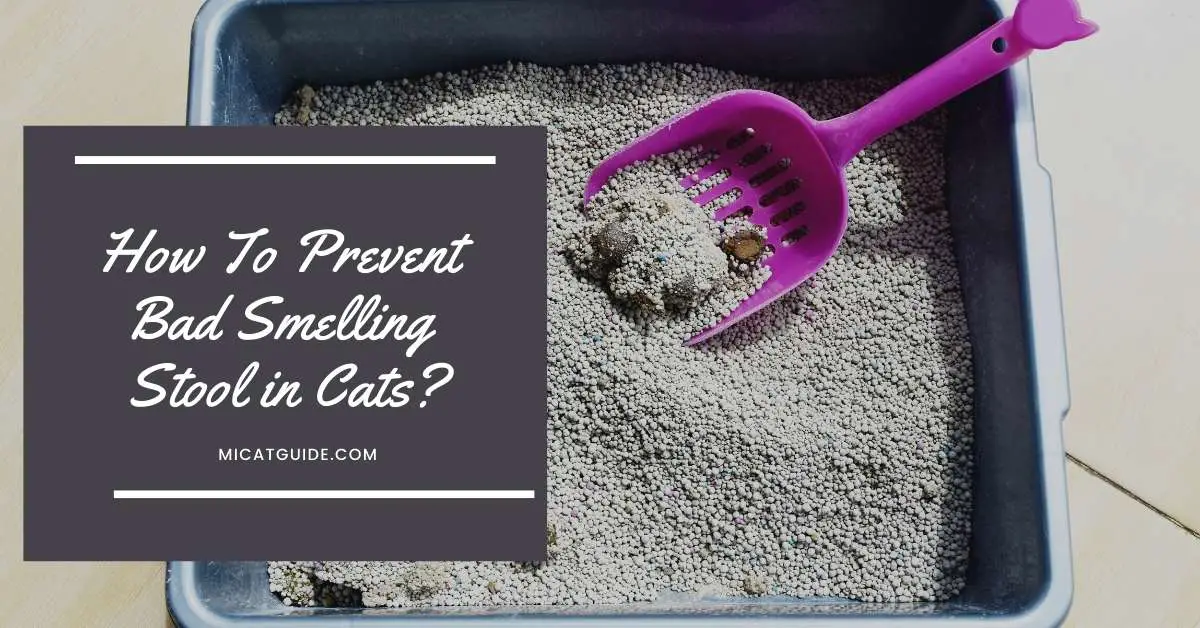
Now you’ve learned about the different causes of bad smelling stool in cats, as well as some home treatments. But how can you prevent this problem from happening in the first place?
Here are some tips to help prevent bad smelling stool in cats:
1. Change Your Cat’s Diet
Yes, diet can be a cause of bad smelling stool, but it can also be a solution. If your cat is eating a diet that is high in fat, it can lead to gastrointestinal issues.
Talk to your veterinarian about the best diet for your cat. They can recommend a food that is balanced and nutritious, and that will help keep your cat’s digestive system healthy.
2. Keep The Litter Box Clean
If the litter box is not cleaned regularly, it can start to smell bad. This can make your cat’s stool smell bad as well. It’s important to clean the litter box regularly to prevent this from happening. It’s also important to use a litter that is low in dust and scent, to make it more pleasant for your cat to use.
3. Manage Stress
If you think stress is causing your cat’s stool to smell bad, it’s important to try to reduce their stress as much as possible. This may involve providing them with a safe space to retreat to, increasing the amount of playtime they have, or giving them pheromone diffusers or collars.
Furthermore, as few days ago, I wrote an article about how stress can make a cat avoid using the bathroom. So, if you believe your cat’s feces smells terrible because to stress, be sure to read that article as well!
4. Keep Their Anal Glands Clean
The anal glands are two small glands located near the anus. These glands produce a foul-smelling liquid that is released when your cat defecates.
If the anal glands become full or infected, they can cause your cat’s stool to smell bad. Your veterinarian can express the anal glands to relieve the pressure and help clear the infection.
5. Check For Parasites
Intestinal parasites are a common cause of bad smelling stool in cats. If you think your cat may have parasites, it’s important to take them to the vet for a diagnosis. Your vet can prescribe medication to clear the parasites and improve your cat’s health.
Medications & Probiotics if Your Cat’s Poop Smell Bad
Probiotics are living microorganisms that can help improve your cat’s digestive health. There are many different types of probiotics available, so talk to your veterinarian about which one would be best for your cat.
There are also a few medications that can help treat and prevent gastrointestinal issues in cats. These include antacids, antibiotics, anti-inflammatories, and laxatives.
When To Visit The Vet?
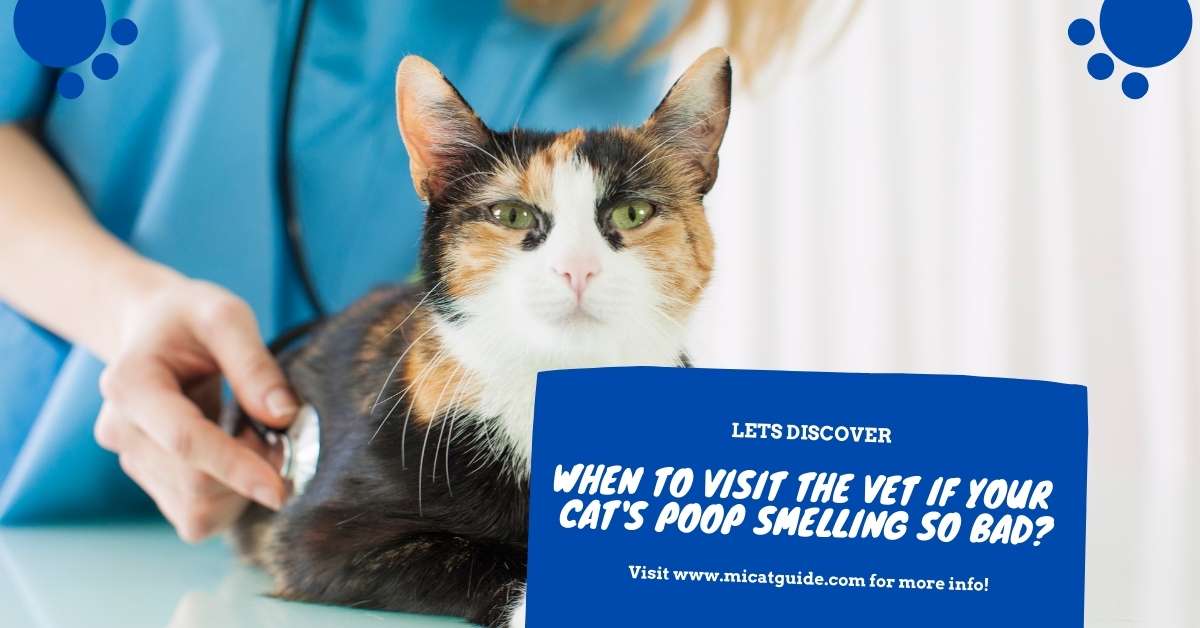
Most cases of bad-smelling stool in cats can be treated at home. However, there are some cases where you should take your cat to the veterinarian.
If your cat is experiencing other symptoms like vomiting, diarrhea, appetite loss, or weight loss, you should take them to the vet.
These could be signs of a more serious condition that needs medical attention. You should also take your cat to the vet if the bad smelling stool does not improve after you have tried home treatments. Your veterinarian can help identify the cause of the problem and recommend the best course of treatment.
The Summary
Bad smelling stool in cats can be caused by a variety of things, including diet, stress, and parasites. Most cases can be treated at home with some simple changes.
However, if the bad smelling stool does not improve after you have tried home treatments, you should take your cat to the veterinarian. They can help identify the cause of the problem and recommend the best course of treatment.

